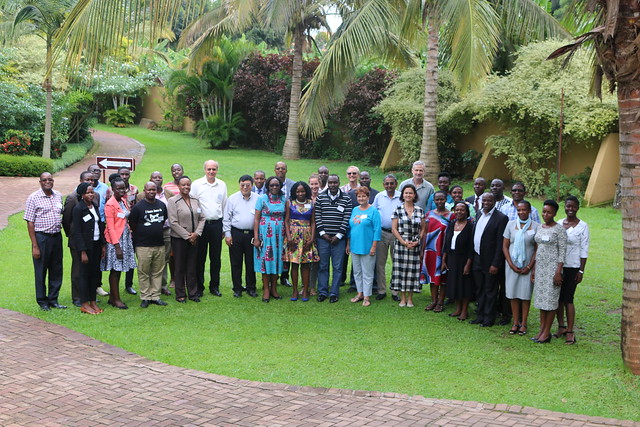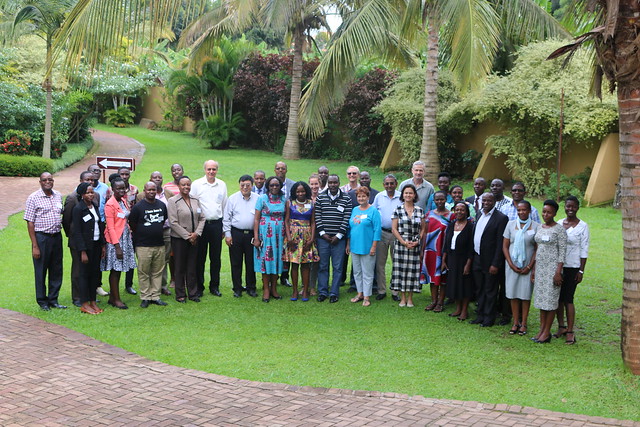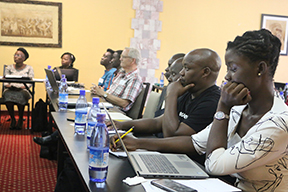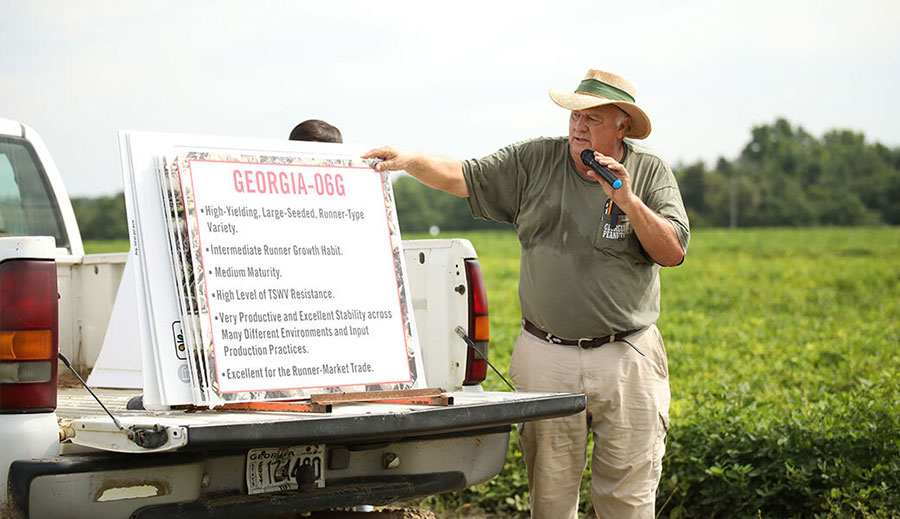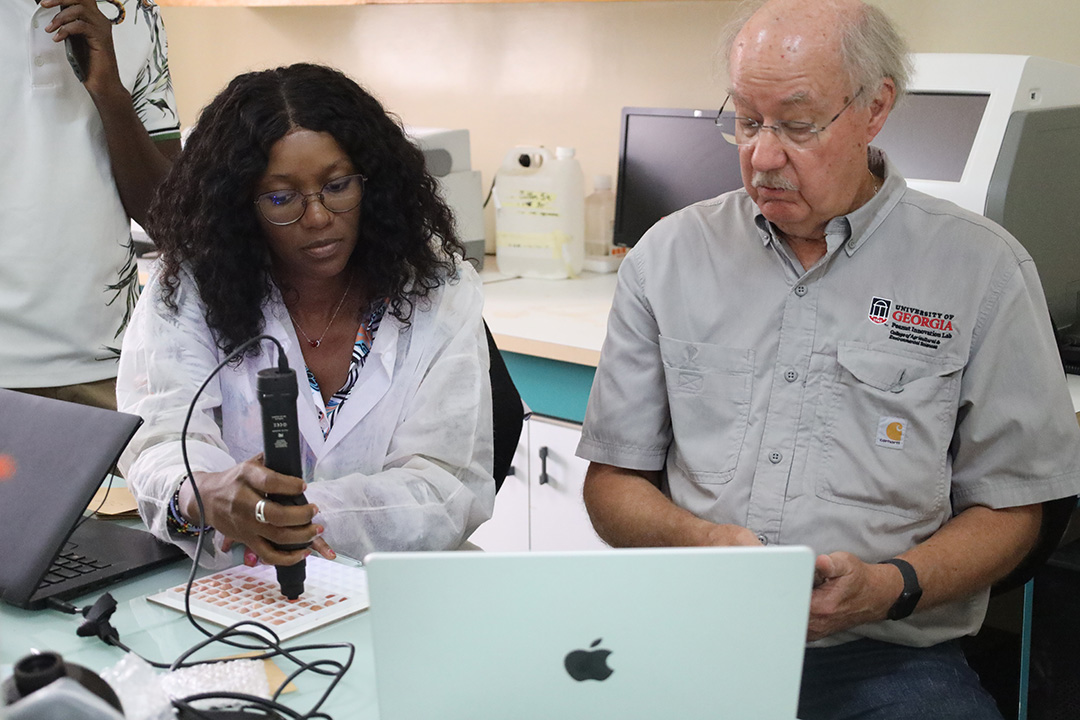Scientists, students and advisors working on Peanut Innovation Lab projects in Uganda met in late May for a launch meeting in Kampala to celebrate the start of work and share questions and insight about the direction of projects.
Seven graduate students – five women and two men – are beginning research that will contribute to the overall findings. While all of the students study at Makerere University, three are Ugandan, two are from Ghana and two are from Kenya.
The lab currently has half a dozen projects that deal with peanut production, processing and consumption in Uganda, including:
David Kalule Okello
National Semi-Arid Resources Research Institute
The project will use molecular markers to dissect specific traits and identify favorable alleles/genomic regions within diverse varieties across Eastern and Southern Africa for use in breeding programs.
Soraya Leal Bertioli
Department of Plant Pathology, University of Georgia
Wild relatives of peanut will be tapped to provide new alleles that will give cultivated species resistance to groundnut rosette disease, leaf spots and other diseases. Synthetic, induced allotetraploid lines containing some of these wild species are available at UGA and will be tested and used in crosses in Uganda.
Maria Balota
Pathology, Physiology, and Weed Science, Virginia Tech
The project will use relatively inexpensive, high-throughput technologies – such as heat sensors, photometers/cameras and color analysis software – to gauge the health of plants in the field in order to more quickly evaluate large numbers of plants in breeding trials, with the goal to more accurately phenotype germplasm and speed up variety improvement.
Mapping resistance to groundnut rosette disease
Josh Clevenger
Institute of Plant Breeding, Genetics and Genomics, University of Georgia
Various segregating populations will be evaluated in the field and lab to identify the genes involved in resistance to groundnut rosette disease, a major cause of yield loss across many countries of Africa.
Groundnut rosette disease virus alternative host
Mike Deom
Department of Plant Pathology, University of Georgia
The goal is to find the alternate host(s) of groundnut rosette disease (where the virus lives when it’s not attacking peanut) to develop more sustainable control strategies.
Peanuts and the gut microbiome
JS Wang
Department of Environmental Health Science, University of Georgia
The project explores the effects of peanut consumption on the gut microbiota of Ugandan youth to determine the benefits of peanut consumption on health.
Using photovoice to improve youth involvement in the peanut value chain
Carrie Stephens
University of Tennessee
The project team will use photos taken by youth to determine reasons why youth are/are not interested in becoming involved in the peanut value chain activities and determine possible methods to increase their involvement.

